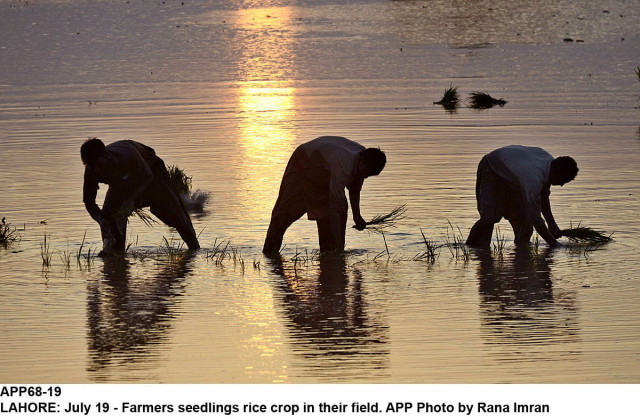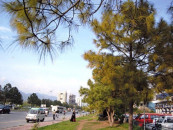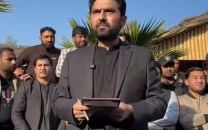Boosting agriculture output: Experts join hands to combat climate change
Participants at meeting decide to analyse data, redefine agro zones

Ayub Agricultural Research (AARI) Director General (DG) Abid Mehmood said new climate-tolerant crop varieties will help address the problem of climate changes. PHOTO: APP
The decision was taken at a meeting chaired by University of Agriculture Faisalabad (UAF) Vice-Chancellor Professor Dr Iqrar Ahmad Khan, where participants decided to analyse climate data for the last 10 years and redefine agro zones.
Dr Iqrar said agricultural productivity has decreased due to climate change. He added collaborative work will help devise viable solutions to boost agricultural output and provide recommendations on agro zones.
Uncertainty about the intensity of rainfall has increased the likelihood of droughts and rising temperatures have affected crop yields, he said.
“Floriculture in the country is an untapped area and we need to take measures to give the sector a boost,” he said. “The government is setting up a horticulture institute in Lahore that will bring hallmark results.”
University of Agriculture Multan VC Prof Dr Asif Ali said tangible research on factors that have adversely impacted the agricultural sector needs to be carried out to ensure food security.
“We have to develop [crop] varieties by keeping in view the changing climate as agro zones are changing,” he said. “If we do not take measures to address challenges, the issue of food insecurity will deepen.”
Arid Agriculture University (AAU) Rawalpindi VC Dr Rai Niaz said groundwater quality was deteriorating and affecting productivity. He said work on the agro zone will be helpful to address problems of the farming level and to ensure food security in the country.
Agriculture extension department director general Dr Anjum Ali Bhuttar said eight agro-ecological zones in the country have a good profile. He informed participants at the meeting about changes taking place within these zones.
Ayub Agricultural Research (AARI) Director General (DG) Abid Mehmood said new climate-tolerant crop varieties will help address the problem of climate changes. He added crop areas are changing due to climate change. According to Mehmood, joint efforts are needed to address the matter.
Published in The Express Tribune, October 2nd, 2016.



















COMMENTS
Comments are moderated and generally will be posted if they are on-topic and not abusive.
For more information, please see our Comments FAQ